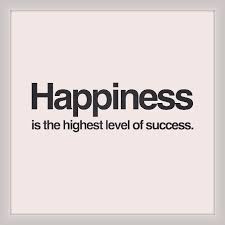“Success does not entail happiness, rather happiness is success” – Ellie Hewes
For those of us who are not new to the school, at RHS many have stood behind this lectern reiterating to us that we should take the opportunities which this school provides in order to acquire new skills and develop as individuals. However, if I just repeated this same message and in fact, many of the messages also directed to the school by the previous Head Scholars, I thought that I wouldn’t be using this opportunity to its fullest potential. Therefore, I looked to produce a message which I had thought about over the course of the holiday, which I think is increasingly relevant to our society.
One of the concepts which underpins most schools, is ‘success’. For many people, this word will mean many different things. Over the summer holidays, I realised that I thought ‘success’ meant happiness and contentment. However, I soon realised that the two are very different. I realised that success does not entail happiness, rather, happiness is success.
Most people who know me, know that I am conscientious and that I work until the product is perfect. I have been asked many times why I have this drive and if I am being honest, I have never been able to give an answer, which isn’t vague. However, over lockdown, with more time on my hands, I pondered on this question and I seemed to come to the conclusion that it was because I wanted to be successful, which I believed would entail contentment. I realised that I was constantly striving for success and wondered to myself whether I will ever be content with the quantity of success which I have achieved. This was when I realised that contentment is success as many will not gain true contentment in their lifetime. Many adults are still looking to progress to better and more prestigious jobs.
Many of you are probably thinking, well, if I got to the height of success, such as obtaining an Olympic medal, I would be content. However, would you? Many, such as Harold Abraham gained the Olympic medal which he had fought for for all of his life and after it, when this lifetime goal was achieved, he was lost.
I guess that the question then is, how much success does one need in order to achieve contentment. Abraham seemed to hyperbolise the fact that no matter how much success one has, it will not always cause happiness. Few people actually gain pure and true contentment in their life and as one gets older, one realises this more and more.
So, I guess a lot of you are thinking, where am I going with this talk? The topic which I have just spoken about, is something which I have thought about a lot, due to the many people who asked me questions about my drive in academia and I guess I looked further into it because I am interested in delving further into topics which many may not have thought of. Many believe success entails happiness, but I disagree and have evaluated this claim in order to come to this conclusion. I think that the ability to critically look at some of the norms which have become entrenched in our society, is something which we do not do enough of and I urge all of you to look at these and come to your own conclusions about them. Discuss with others your evaluations and engage with those views of others in a sensible manner. However, this cannot just take place in the classroom as there is seldom enough time to delve into these concepts, which may not be in the curriculum. Like those who have completed these summer projects, extra time outside the classroom is needed. One of the best opportunities which the school provides for everybody to do this, are the Riddle and Studd societies, which I would urge all of you to go to. This is something which marks out those who are consumers of knowledge, to those who become generators of knowledge.















Post Comment
You must be logged in to post a comment.